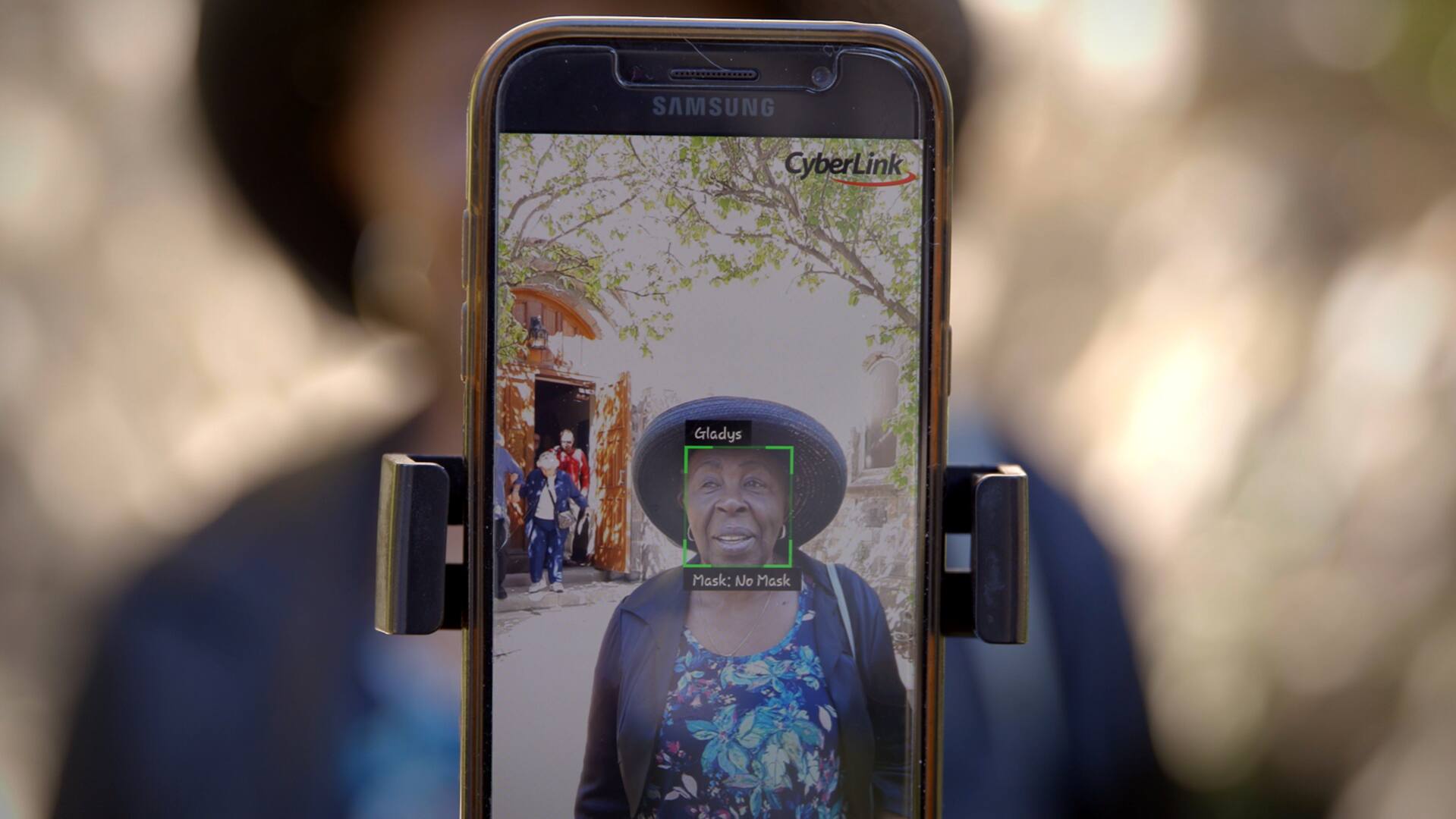Meet Karla Holmes. She’s been the reverend of St. Thomas’ Anglican Church in Montreal for 10 years. Members of her congregation look to her for comfort and leadership on a weekly basis.
The thing is, Holmes can’t recognize any of them.
She has prosopagnosia, or “face-blindness,” a condition that makes it difficult for her to tell one person’s face from another.
“Trying to differentiate people is … for me, like trying to differentiate golden retrievers,” says Holmes. “How do you tell one human being from another?”
In Your Face, a documentary from The Nature of Things, shows just how skilled most of us are at instantly recognizing thousands of different faces. “It’s like a superpower,” Holmes says.
She can’t recognize her own daughter
“I can never really be sure that I see who I think I see,” says Holmes. “It’s totally destabilizing.”
Among her congregation, Holmes’s inability to tell people apart can cause some issues. “Everyone wants to be known, especially by their priest,” she says in the documentary. “People don’t expect that I don’t recognize them, and their feelings get hurt. And I understand.”
It’s not just her churchgoers or acquaintances that she can’t recognize. Holmes recalls times she can’t even recognize her own daughter. “I was looking at my daughter … but I did not recognize her.”
“When she gives me that look,” says Holmes’s daughter, when her mother doesn’t recognize her, “it’s shocking because it’s my mom and we have a very close relationship.”
Instead of recognizing a person based solely on their facial features, Holmes employs other methods. “I know who my daughter is, obviously, but visuals are not part of my way of seeing my daughter,” she explains. “It was her voice that clued me in that it was her.”
Aside from voices, Holmes focuses on gaits or distinguishing birthmarks in her attempts to recognize people. “Two eyes … nose and a mouth are very much standard for human beings,” she notes. “So I don’t even … associate that with how to recognize someone because that’s not enough for me. I need something else, and sometimes it’s really hard.”

Up to 2 per cent of us may be face-blind
Holmes isn’t alone in her face-blindness. The documentary notes that a number of noted celebrities and well-known figures such as Jane Goodall, Brad Pitt, Stephen Fry and Apple’s Steve Wozniak are all said to be face-blind to varying degrees.
In fact, studies suggest that up to two per cent of us may have face-blindness.
People with prosopagnosia may also have trouble differentiating between other things like cars or facial expressions of emotion, but sometimes, the inability to recognize faces is the only symptom.
In certain situations, Holmes can’t even recognize herself. In department stores with lots of mirrors, “I see myself on an angle, I don’t realize that it’s me,” she says. “It’s my reflection, [but] I don’t recognize that person as being me.”
Using facial recognition technology to unlock a superpower
In recent years, technology has been developed that rivals our own “superpower.” Facial recognition software has developed quickly, with many now using their face instead of passwords to unlock devices or make financial transactions.
For Holmes, facial recognition technology can be incredibly helpful. While testing out a personalized app, she was able to recognize members of her flock for the first time.
Watch: This face-blind woman uses a smartphone app to recognize people’s faces for her.
For Karla Holmes, facial recognition technology can be incredibly helpful. While testing out a personalized app, she was able to recognize members of her flock for the first time. 1:34
“Today was different. She recognized me as I came out, right away,” says Gladys, a member of Holmes’s church. “It’s good for her and it’s good for us as a congregation.”
“The best part was feeling sure … that it wasn’t my imagination or it wasn’t my best guess,” says Holmes. “And that feeling was wonderful.”
Watch In Your Face on The Nature of Things.






More Stories
Satellite built by N.B. students not responding a week after entering Earth’s orbit | Globalnews.ca
Cisco reveals security breach, warns of state-sponsored spy campaign
Ingenuity Mars Helicopter down but definitely not out | CBC Radio